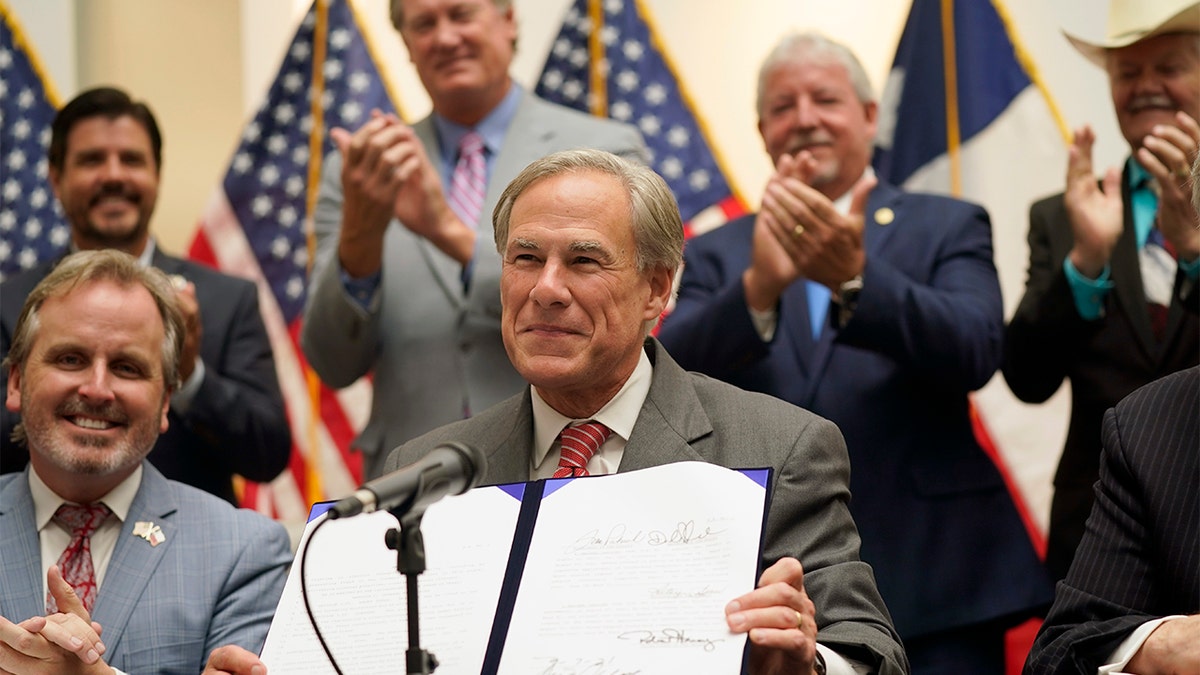Fox News Flash top headlines for September 7
Fox News Flash top headlines are here. Check out what's clicking on Foxnews.com.
Just minutes after Texas Gov. Greg Abbott signed Texas' new election law, several left-leaning groups announced lawsuits aimed at invalidating the legislation Texas Republicans consider a major victory for election security.
Democratic lawyer Marc Elias led the way with a suit on behalf of multiple Texas nonprofits that he filed immediately after the law was signed.
"The Legislature enacted SB 1 not to preserve election integrity or combat election fraud – after all, the State's own election officials have acknowledged that elections in Texas are already secure – but rather to stem the growing tide of minority voter participation by weaponizing the false, repeatedly debunked accusations of widespread voter fraud advanced by supporters of former President Donald Trump during the 2020 presidential election," Elias' lawsuit alleged.
One of the major parts of the bill that Elias' suit argues is meant to "insidiously" suppress votes is the protection the law gives to poll watchers. Republicans argue that full access to the polls for representatives of both parties is a crucial way to protect against election fraud. But Elias argues that election officials and votes may feel harassed and intimidated.

Texas Gov Greg Abbott shows off Senate Bill 1, also known as the election integrity bill, after he signed it into law in Tyler, Texas, Tuesday, Sept. 7, 2021. The sweeping bill signed Tuesday by the two-term Republican governor further tightens Texas’ strict voting laws. (AP Photo/LM Otero)
His effort was not left-leaning groups' only early salvo against the law. The National Association for the Advancement of Colored People (NAACP) announced its own lawsuit against Texas and the American Civil Liberties Union (ACLU) foreshadowed that it would sue the state as well.
"Today, the NAACP Legal Defense and Educational Fund, Inc. (LDF), Reed Smith LLP, and The Arc filed a federal lawsuit on behalf of the Houston Area Urban League, Houston Justice, Delta Sigma Theta Sorority, Inc., and The Arc of Texas challenging S.B. 1, a new Texas law targeting voting rights," the NAACP announced.
"BREAKING: The Governor of Texas just signed SB1, a new voter suppression law. This law is unconstitutional and anti-democratic. Texas — we’ll see you in court. Again," the ACLU tweeted.
The NAACP suit alleges that the "the burdens imposed by [the law's] provisions, individually and collectively, are serious and substantial, and will likely result in the disenfranchisement of voters of color."
Among these provisions, the NAACP says, are a ban on drop boxes, a ban on drive-thru voting, the elimination of 24-hour voting, ID requirements for mail voting and more. Republicans say that absentee voting outside of Election Day is particularly vulnerable to fraud and therefore deserves significant protections. Democrats, meanwhile, say that those kinds of rules only erect barriers to minority voters who they say have a harder time getting things like government IDs.
Republicans, meanwhile, claimed victory after a monthslong fight to pass the law.
"Gov. Abbott and the Texas legislature should be commended on shepherding this historic election integrity bill into law," Honest Elections Project executive director Jason Snead said in a statement.
CLICK HERE TO GET THE FOX NEWS APP
"After months of shenanigans by some rogue Texas Democrats which delayed the inevitable outcome, Texans can be proud of this new law," Snead continued. "It provides for strong and popular protections, like voter ID for absentee voting and a ban on ballot trafficking, that ensure the integrity of every vote while also expanding voting access. Texas has made it easy to vote but hard to cheat and that’s the system voters deserve."
Abbott's office did not immediately respond to a request for comment on the Democratic lawsuits against the new Texas law.
The law still faces a long road ahead, with potential injunctions from lower courts as Democrats' lawsuits percolate through the legal system. It's not clear that the law will be in effect for the midterm elections in 2022 as the legal battle develops.
But Democrats' lawsuits are likely to face an uphill battle if they hope to win on final judgment. The Supreme Court's recent decision upholding Arizona's similar election laws is likely to weigh heavily as courts consider whether Texas' law is constitutional.














































